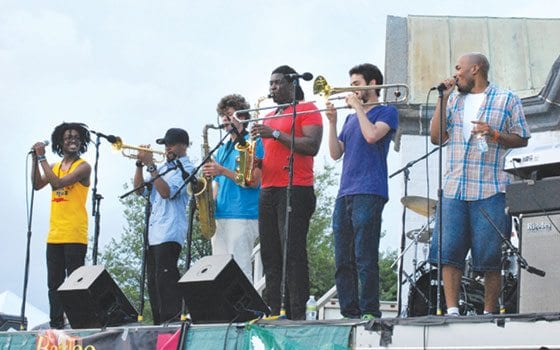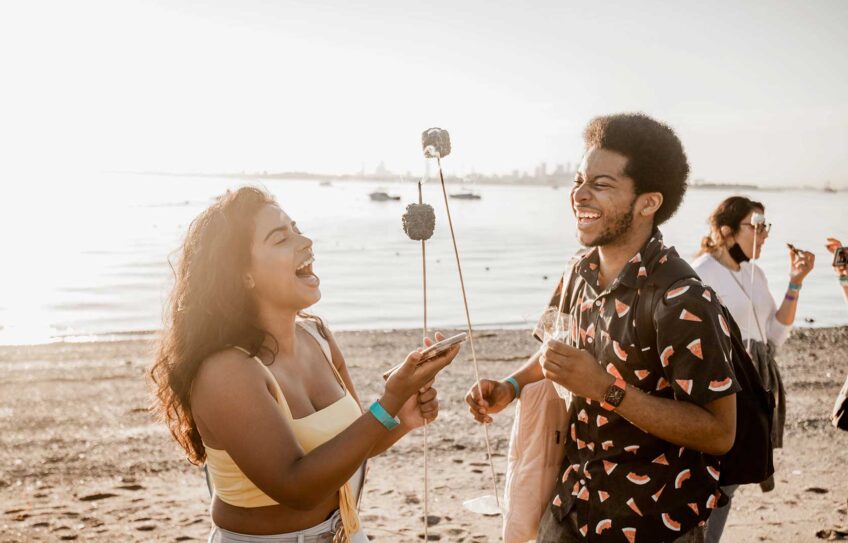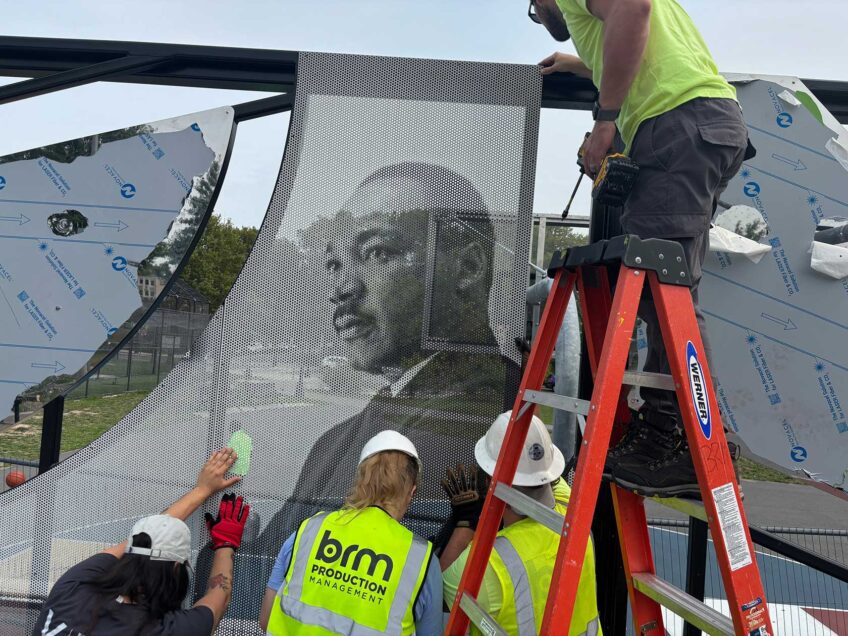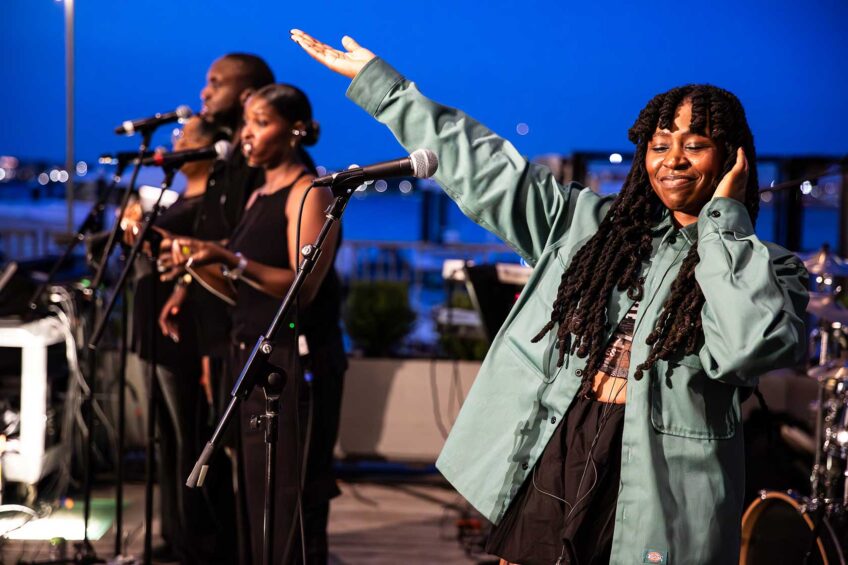
(L-R): Muse, Igmar Thomas, Phillip Young, Jesse Scheinin, John Egizi and Raydar Ellis. (Jean Connaughton photo)
| Muse performed last week at the Jazz at the Fort concert. (Jean Connaughton photo) |
During a jazz history class in college, I asked my professor if she noticed any parallels between hip hop and jazz music. I hoped to spark a larger discussion about the link between the two black art forms.
Instead of fostering dialogue, my professor replied with a cursory “No! Hip hop is all about aggression.” I responded with the standard mini-speech I’d developed specifically for people who watch two 50 Cent videos and think they understand the entirety of rap music: that commercial rap offers a limited view of the vast, diverse hip hop culture, which was, in fact, heavily influenced by jazz.
After class I made a list of hip hop artists for my professor to explore so she could understand jazz’s broader impact on the black musical landscape. If I was still in touch with that professor today, I would have invited her to Hip Hop 1942, the free annual Jazz at the Fort concert last Sunday that delivered a musical history lesson about the ties that bind the two genres.
During a 90-minute performance at Roxbury’s Highland Park, an eight-piece band comprised of Berklee students, alumni and faculty masterfully recreated jazz standards that gave way to the hip hop classics that sampled them: Dizzy Gillespie’s “A Night In Tunisia” transitioned into Gang Starr’s “Words I Manifest,” Clifford Brown’s “Yesterdays” became KRS-One’s “MCs Act Like They Don’t Know” and Tom Scott’s “Today” segued into Pete Rock and C.L. Smooth’s “They Reminisce Over You (T.R.O.Y.).”
The band — which included a four-piece horn section and two MCs trading verses in between instrumental interludes — delivered jazz-influenced rap hits including Black Sheep’s “The Choice Is Yours,” Main Source’s “Looking At the Front Door” and A Tribe Called Quest’s “Jazz (We’ve Got).” The Nas gem “N.Y. State of Mind” was appropriately remixed into “Beantown State of Mind.”
Raydar Ellis, one of the ensemble’s two rappers and the event’s unofficial host, dubbed Hip Hop 1942 a musical family reunion, explaining that hip hop is the child of jazz music and the twin sibling of punk rock.
Ellis prefaced a rap freestyle segment by noting that improvisation makes up the DNA of both jazz and hip hop. He also explained that the oft-derided tactic of sampling is actually used to create new compositions, much like different colors are used to craft a painting or multiple fabrics are combined to manufacture clothing.
“Everything in life is a sample … what we seek to do with this is just to bridge the gap,” Ellis said. “The moral of the story is sample life.”
The event found a large crowd, families included, sprawled out on blankets and lawn chairs or seated on coolers as they soaked in the colorful stylings of some of the city’s most talented musicians.
Call it hip hop heaven for rap purists or enlightenment for jazz aficionados who dismiss rap as some sort of musical monstrosity — Hip Hop 1942 was a much-needed exploration of the black musical tradition that fills a void in the local arts scene.
The show undeniably dispelled misconceptions heavily promoted by mainstream hip hop, which by and large marginalizes conscious messages and sells negative black stereotypes for profit.
“People know about the commercial part of hip hop, but there’s a whole other world — there’s a deeper component,” said Meghan Stabile, a Berklee alum and founder of Revive Music, which produced the event. “Hip hop is not just what you hear on the radio or see on TV. The larger message is to dig deeper.”







